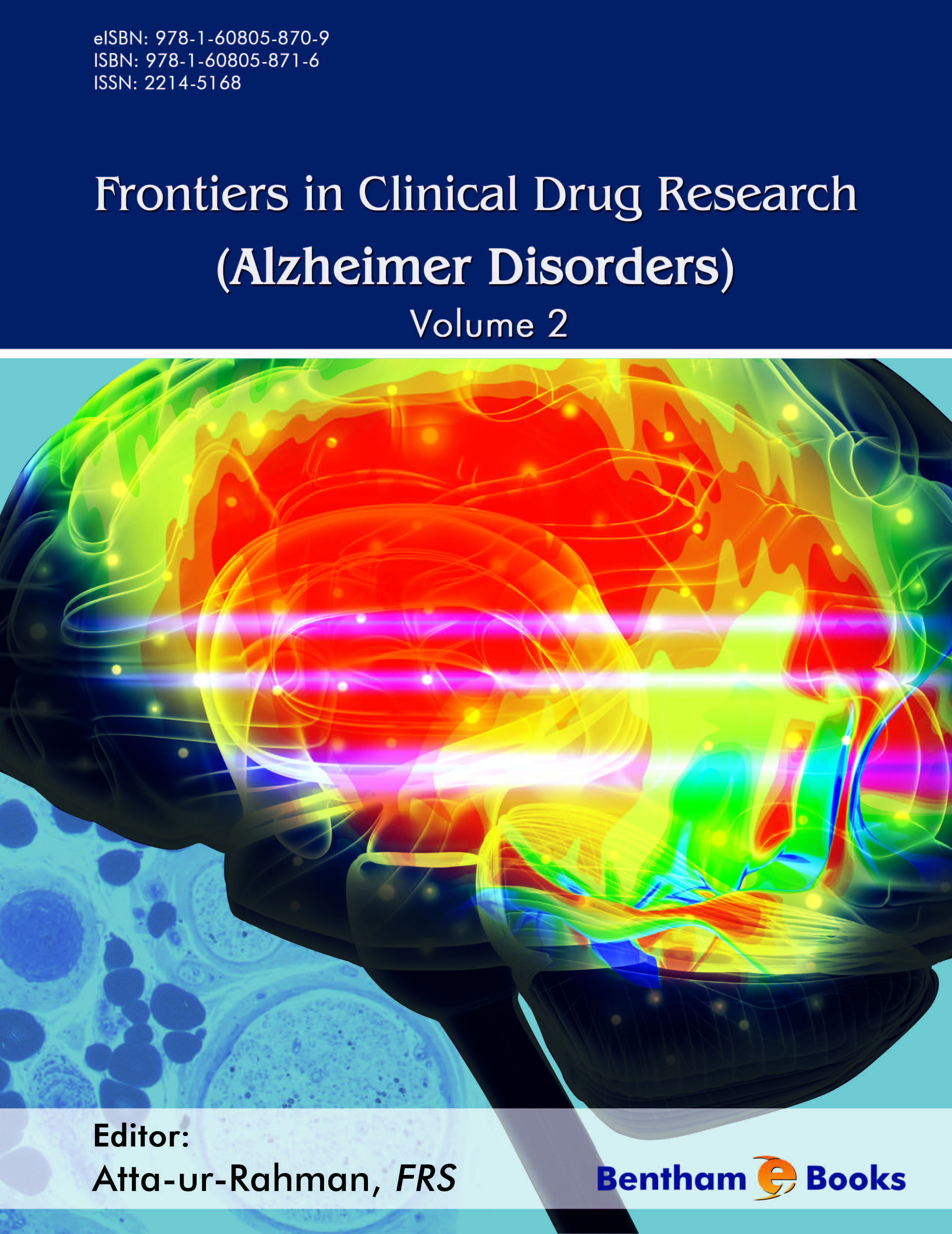Alzheimer’s disease is the most common form of dementia which is defined as the
loss of cognitive functioning and behavioral abilities. Like all types of dementia,
Alzheimer's is caused by brain cell death. It is a neurodegenerative disease which
leads to progressive brain cell death that occurs over a period of time. A variety of
suspected causes are being investigated including factors in the environment,
biochemical disturbances and immune processes.
At present there is no cure for Alzheimer's disease but there is a worldwide
attempt under way to find better modes to treat the disease, to delay its onset, and
to prevent it from developing. The book series, “Frontiers in Clinical Drug
Research – Alzheimer Disorders”, is intended to present the most notable
developments in the field in the form of cutting edge reviews written by leading
experts.
Volume 2 of this eBook series is a compilation of five well written chapters
contributed by some of the most prominent researchers in the field. It contains
new therapeutic strategies, clinical drug research and development, evolving
techniques of volumetric measurement of the hippocampus, and implications for
possible therapeutic targets and environmental impact on the etiology of
Alzheimer’s disease.
Baloyannis in Chapter 1 describes the ultrastructural modifications of the cerebellar
cortex in the early onset of AD and focuses the study especially on mitochondria,
Golgi apparatus, dendritic branches, dendritic spines and synapses in the cerebellar
hemispheres and the vermis. The review concludes that on the basis of the
mitochondrial and Golgi complex pathology, new therapeutic strategies protecting
those organelles might be planned for the treatment of AD, particularly at its early
stages.
Chapter 2 by Zhang et al. reviews the major pathological features and hypotheses
in Alzheimer’s disease (AD). Moreover, the current available drugs and their
applications are described in this review. The potential drugs in clinical trials and
under advanced stages of development are also introduced.
Volumetric measurement of the hippocampus is currently an emerging area for a
number of neuropsychiatric disorders. The volumetric analysis of the
hippocampus in Alzheimer’s disease plays an important role in pathophysiology
of this neurological disorder. Dhikav et al. in Chapter 3 introduce methods for
estimating the hippocampal volume loss in Alzheimer’s disease.
Daulatzai in Chapter 4 comprehensively describes the synergistic
pathophysiological factors that may underlie the onset and progression of
cognitive dysfunction. This review provides details of the multifactorial
pathologies that promote inflammation and enhance vulnerability to Late-Onset
Alzheimer’s disease. Possible therapeutic targets are also discussed.
Epigenetic mechanisms are involved in learning and memory. Most of the
biological pathways dysregulated in AD are controlled through epigenetic
modifications. The environmental impact on the etiology of Alzheimer’s disease
is extensively reviewed by Benassi and Consales. This review explains that the
role of neuroepigenetics in classifying new aspects and novel therapeutic
strategies for the treatment of Alzheimer’s disease.
This second volume of the book series represents the results of a considerable
amount of work by many eminent contributors. I wish to thank them all for their
excellent contributions and their commitment to complete the writing assignments
in time. I also wish to thank the excellent team of Bentham Science Publishers,
especially Ms. Fariya Zulfiqar, led by Mr. Mahmood Alam, Director Bentham
Science Publishers, who deserve all appreciation.
Atta-ur-Rahman
Honorary Life Fellow
Kings College
University of Cambridge
UK

